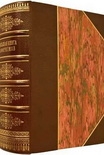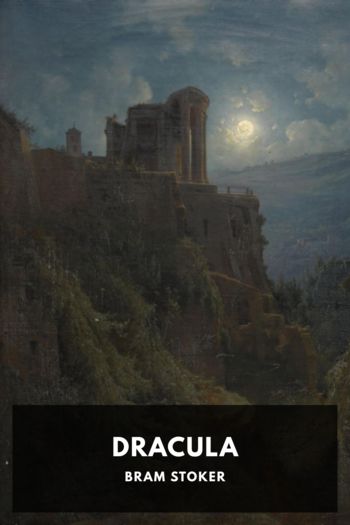American Sherlocks by Nick Rennison (good books to read for 12 year olds .TXT) 📗

- Author: Nick Rennison
Book online «American Sherlocks by Nick Rennison (good books to read for 12 year olds .TXT) 📗». Author Nick Rennison
‘Mr Wiggins is at present in the custody of the county jail for killing H Smitz with intent to murder him,’ said Mr Gubb.
‘Oh, then – then it’s all settled,’ said the banker. ‘They’ve proved it on him. I thought they would. Well, I suppose you’ve got to do your little bit of detecting just the same. Got to air the camphor out of the false hair, eh?’
The banker waved a cheerful hand at P Gubb and passed into his banking institution.
Detective Gubb, cordially greeted by his many friends and admirers, passed on down the main street, and by the time he reached the street that led to the river he was followed by a large and growing group intent on the pleasant occupation of watching a detective detect.
As Mr Gubb walked toward the river, other citizens joined the group, but all kept a respectful distance behind him. When Mr Gubb reached River Street and his false moustache fell off, the interest of the audience stopped short three paces behind him and stood until he had rescued the moustache and once more placed its wires in his nostrils. Then, when he moved forward again, they too moved forward. Never, perhaps, in the history of crime was a detective favored with a more respectful gallery.
On the edge of the river, Mr Gubb found Long Sam Fliggis, the mussel-dredger, seated on an empty tar-barrel with his own audience ranged before him listening while he told, for the fortieth time, the story of his finding of the body of H Smitz. As Philo Gubb approached, Long Sam ceased speaking, and his audience and Mr Gubb’s gallery merged into one great circle which respectfully looked and listened while Mr Gubb questioned the mussel-dredger.
‘Suicide?’ said Long Sam scoffingly. ‘Why, he wan’t no more a suicide than I am right now. He was murdered or wan’t nothin’! I’ve dredged up some suicides in my day, and some of ’em had stones tied to ’em, to make sure they’d sink, and some thought they’d sink without no ballast, but nary one of ’em ever sewed himself into a bag, and I give my word,’ he said positively, ‘that Hen Smitz couldn’t have sewed himself into that burlap bag unless someone done the sewing. Then the feller that did it was an assistant-suicide, and the way I look at it is that an assistant-suicide is jest the same as a murderer.’
The crowd murmured approval, but Mr Gubb held up his hand for silence.
‘In certain kinds of burlap bags it is possibly probable a man could sew himself into it,’ said Mr Gubb, and the crowd, seeing the logic of the remark applauded gently but feelingly.
‘You ain’t seen the way he was sewed up,’ said Long Sam, ‘or you wouldn’t talk like that.’
‘I haven’t yet took a look,’ admitted Mr Gubb, ‘but I aim so to do immediately after I find a clue onto which to work up my case. An A-1 deteckative can’t set forth to work until he has a clue, that being a rule of the game.’
‘What kind of a clue was you lookin’ for?’ asked Long Sam. ‘What’s a clue, anyway?’
‘A clue,’ said P Gubb, ‘is almost anything connected with the late lamented, but generally something that nobody but a deteckative would think had anything to do with anything whatsoever. Not infrequently often it is a button.’
‘Well, I’ve got no button except them that is sewed onto me,’ said Long Sam, ‘but if this here sack-needle will do any good –’
He brought from his pocket the point of a heavy sack-needle and laid it in Philo Gubb’s palm. Mr Gubb looked at it carefully. In the eye of the needle still remained a few inches of twine.
‘I cut that off’n the burlap he was sewed up in,’ volunteered Long Sam, ‘I thought I’d keep it as a sort of nice little souvenir. I’d like it back again when you don’t need it for a clue no more.’
‘Certainly sure,’ agreed Mr Gubb, and he examined the needle carefully.
There are two kinds of sack-needles in general use. In both, the point of the needle is curved to facilitate pushing it into and out of a closely filled sack; in both, the curved portion is somewhat flattened so that the thumb and finger may secure a firm grasp to pull the needle through; but in one style the eye is at the end of the shaft while in the other it is near the point. This needle was like neither; the eye was midway of the shaft; the needle was pointed at each end and the curved portions were not flattened. Mr Gubb noticed another thing – the twine was not the ordinary loosely twisted hemp twine, but a hard, smooth cotton cord, like carpet warp.
‘Thank you,’ said Mr Gubb, ‘and now I will go elsewhere to investigate to a further extent, and it is not necessarily imperative that everybody should accompany along with me if they don’t want to.’
But everybody did want to, it seemed. Long Sam and his audience joined Mr Gubb’s gallery and, with a dozen or so newcomers, they followed Mr Gubb at a decent distance as he walked toward the plant of the Brownson Packing Company, which stood on the riverbank some two blocks away.
It was here Henry Smitz had worked. Six or eight buildings of various sizes, the largest of which stood immediately on the river’s edge, together with the ‘yards’ or pens, all enclosed by a high board fence, constituted the plant of the packing company, and as Mr Gubb appeared at the gate the watchman there stood aside to let him enter.
‘Good morning, Mr Gubb,’ he said pleasantly. ‘I been sort of expecting you. Always





Comments (0)